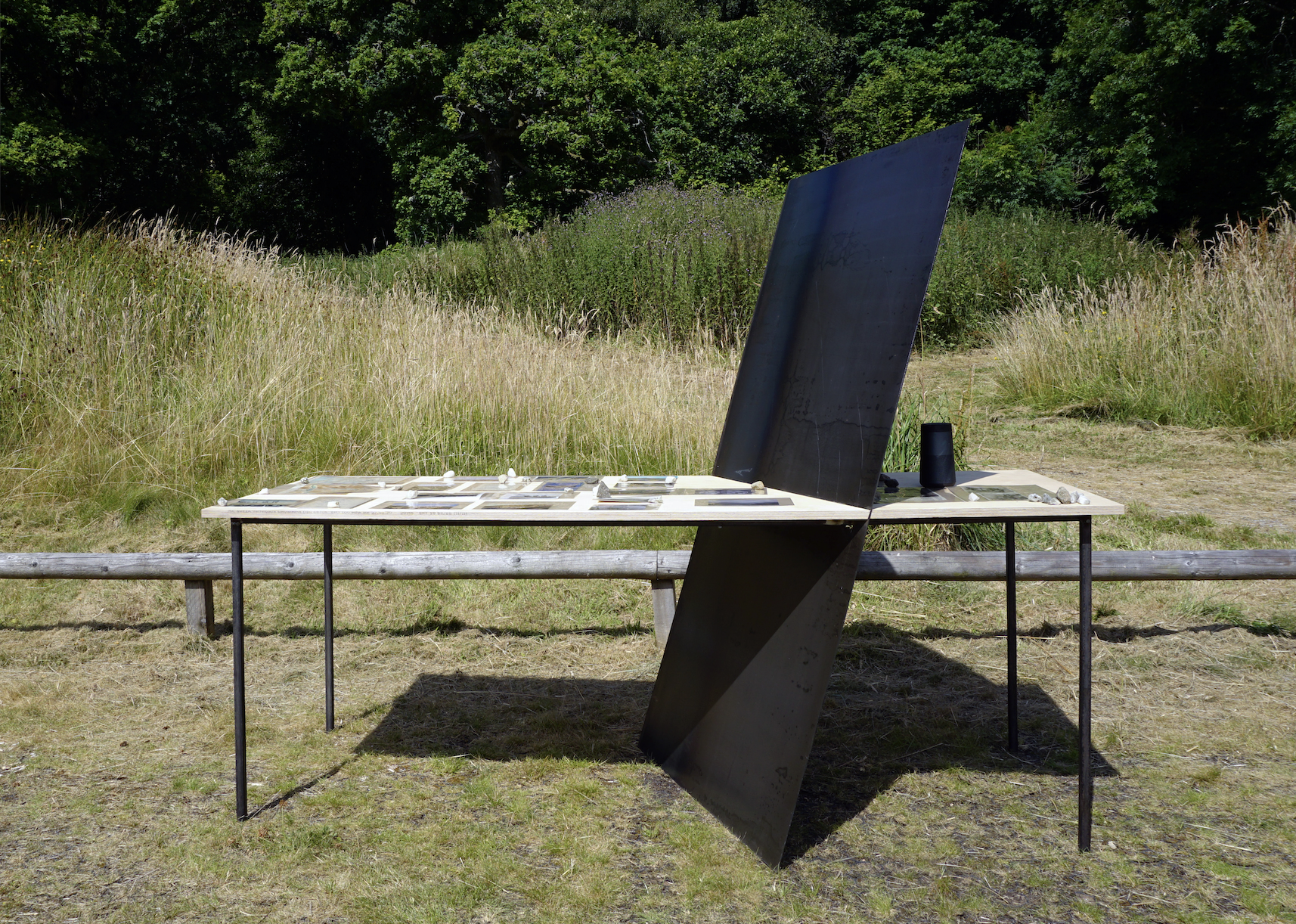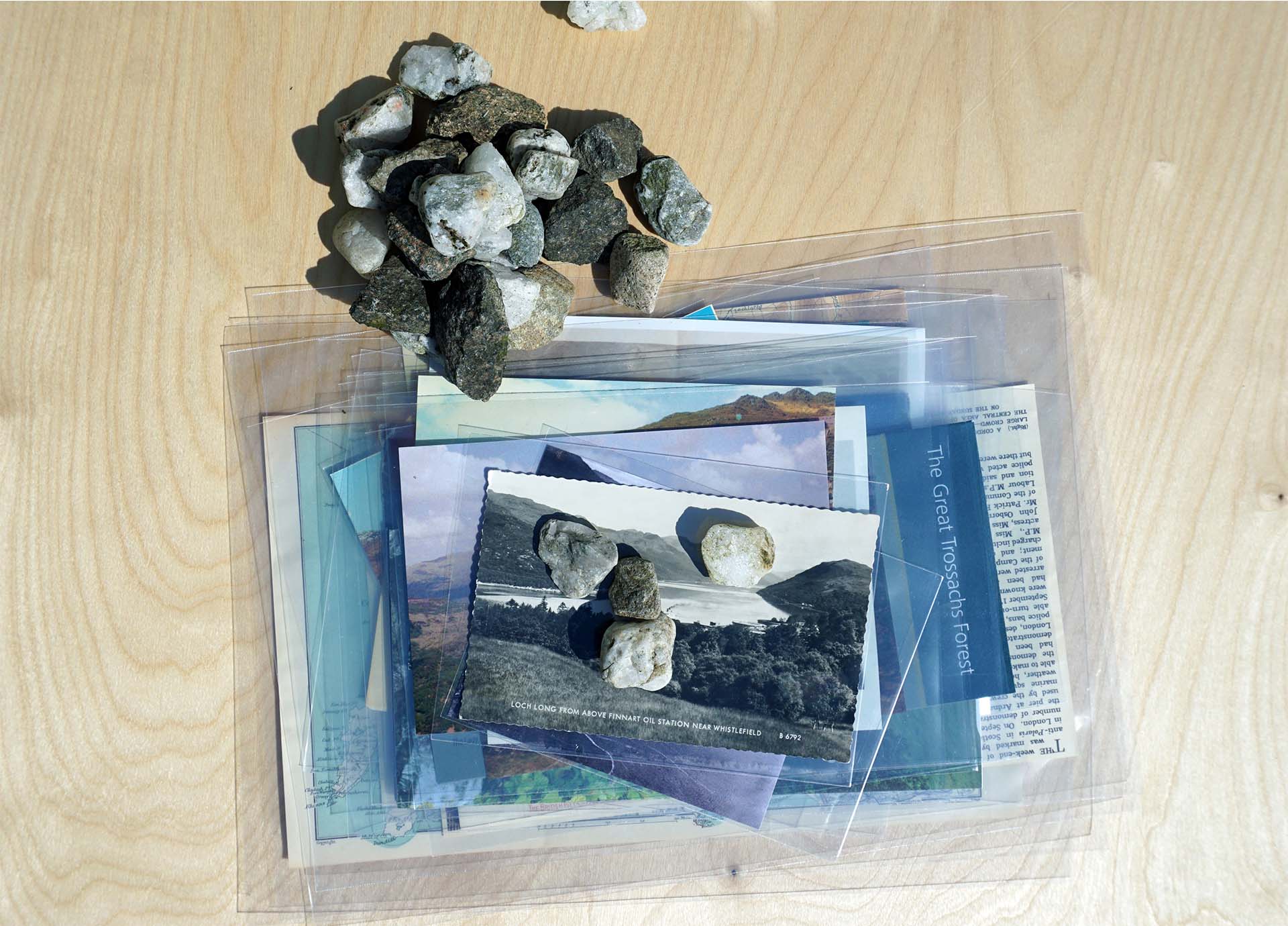2021

Landscapes of infrastructure is a touring installation
that aims to facilitate new ways of interacting with archives and site
histories. Using collected archival materials, personal photography, sound and
conversation, this work questions land use and romantic perceptions of the Scottish
Highlands. It highlights the military and industrial structures that have been
present in these spaces across time periods, allowing the viewer to question
the formation of romantic ideals and how land is used.
The work is designed to
travel to locations across Scotland but has been placed in Loch Lomond and the
Trossachs National Park at the Glen Finglas visitor centre during the first leg
of its travels. This site was chosen specifically because it challenges the false
dichotomy between nature and industry in the Scottish landscape. Situated on the
Great Trossachs Art and Literature Trail, the site has paths leading to a viewpoint
popularised by John Ruskin that helped establish romantic imagery of the
Trossachs but is also nearby to the Glen Finglas dam and hydroelectric scheme.
Situated within the
landscape, in contrast to traditional archival and discussion spaces, this work
allows the viewer to directly connect themes running through the displayed
archival materials to the landscape and interpret them within the sites they
represent.
The table features an inbuilt acoustic deflector into which
live sound of electromagnetic waves is played. This sonic exploration
highlights inaudible site-specific
soundscapes allowing the listener to question what else is unobserved within cultural
constructions of the Highlands.
SOUND ESSAY:
A collection of archival sound in order played
1946 ‘Bonnie
Strathyre’ sung by Robert Wilson originally written by Harold Boulton who first
became interested in Scottish folk songs during his undergraduate in Oxford.
1962 A feature from the Tonight show on BBC, Fyfe
Robertson interviewing locals in Gruinard Bay.
1973 ‘Fire
Leap’ from The Wicker Man.
2021 Recording
of electromagnetic waves from Neilston wind farm mixed with field recording of man-made
reservoirs.
1980’s I
work at Dounreay from Dounreay TV, produced by the UK Atomic Energy
Authority to encourage and recruit young people to Dounreay.
1993 Trucking with Trident from Channel 4 'Free For
All' a documentary about Trident nuclear warhead convoys.
1961 Ding Dong Dollar: Anti-Polaris and Scottish Republican
Songs documenting the arrival of Polaris when the US Navy captain described
them as ‘goddam Eskimos’ giving the song its tile ‘Glasga Eskimos’.
2021 Recording of electromagnetic waves in Arrochar.
1991 Twa recruitin sergeants’ sung by The McCalmans.
SOUND PLAYED THROUGH SPEAKER ON TABLE:
Within the landscape sits obsolete technology, layers
of buried data.
Pastoral sounds of the Scottish landscape recorded in glens, corries and
mountains are intersected with recordings of these sites created through
telephone pick up mics that capture electromagnetic waves. This juxtaposition of
sounds disrupts traditional romantic constructs of these spaces by making the
inaudible soundscape audible.
These sounds were recorded in Loch Lomond and the Trossachs National Park,
where there is a contemporary electro nervous system of train lines, military
complexes, hydro-electric power stations and telephone lines.
These sounds have not been manipulated through the construction of a
melody, although there is a natural rhythm of the passage of time, a metronome
of weather, clouds passing by the cycle of the sun.
MAP OF SITES

